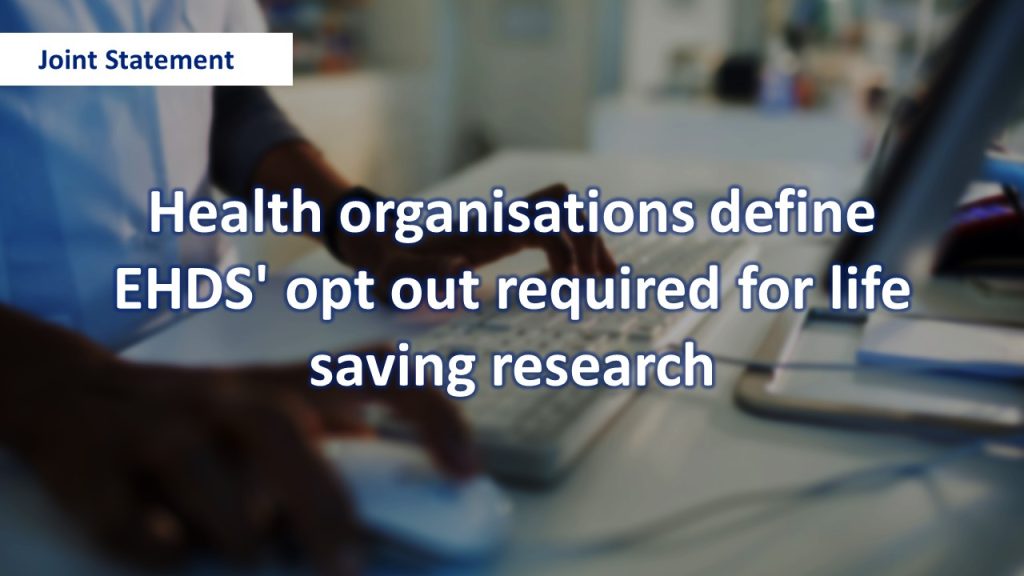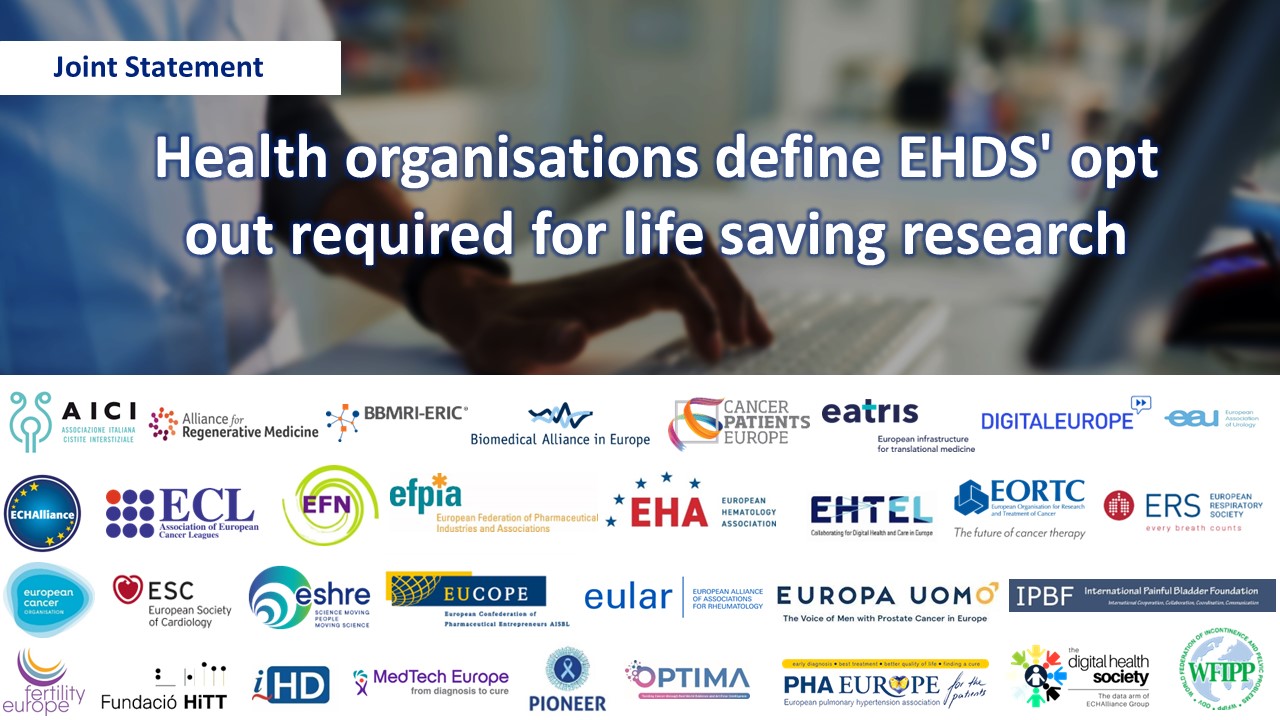News / Press Releases - June 9, 2023
EUCOPE signs Joint Statement on opt-out requirements in EHDS

In October 2022, EUCOPE joined a large group of European stakeholders to welcome the European Commission’s proposal on the European Health Data Space (EHDS), and to highlight common recommendations.
We share the view that health data are precious and renewable resources that can power decision-making for clinical care, deliver life-saving innovations, and strengthen health systems in the 21st century. In light of the current political discussions in the European Parliament and the Council, stakeholders are now sharing publicly their vision and six specific recommendations for a potential opt-out mechanism in the future EHDS.
We support the approach taken in the Commission’s original legislative proposal from May 2022 as it strikes a sensible balance between the protection of personal data while enabling the use of data for research and innovation to create tangible benefits for patients and citizens.
Our recommendations for an effective opt-out mechanism
In June 2023, we signed a joint statement for our recommendations for an effective opt-out mechanism. If the proposals include in the EHDS a European opt-out mechanism for secondary use do move forward in the negotiations, we believe the opt-out mechanism should:
- Be applicable across all Health Data Access Bodies in EU Member States, limiting the scope of national derogation and ensuring that the technical specifications are aligned.
- Consider the impact on health and care professionals and for other data holders. The EHDS cannot contribute to the ‘ticking time bomb’ threatening health and care workforce as described in a 2022 World Health Organization Europe report[ii]. If an opt-out mechanism is pursued, then it is critical that its application is as light touch as practical in terms of any additional responsibilities and tasks it imposes upon frontline healthcare professionals. Opt-out mechanisms will need significant infrastructure to be in place to ensure they become implementable in health and care systems and will require investment in trusted professionals who are able to explain and communicate the opt-out to patients and the broader population.
- Be capable of implementation across the EU, without limiting lawful and ethical data sharing for secondary purposes. Until the opt-out is evenly and consistently in place in all 27 EU Member States, existing safeguards will need to be recognised, especially for retrospective data.
- Be routinely monitored as part of a regularly updated HealthData@EU data governance framework in terms of the general implementation across EU Member States and uptake of the opt-out, including among certain groups of populations to ensure justice and equity and to avoid bias. This routine monitoring is crucial to ensure inclusion and consideration of all demographics, for example, in evidence-based public health policy, health system planning,
and when developing digital health tools. - Have a limited, but well-defined, consistent and transparent scope for categories of data where the opt-out would create disproportionate effort such as medical registries and clinical trials data, render the research impossible, or seriously impair the objectives of the research, the opt-out should not be possible.
- Have necessary investment, infrastructure and budget to ensure sufficient transparency so that citizens are well informed of the opt-out, what it means for them and for society, when it may not apply, and how to enable the opt-out.
Read the full statement

